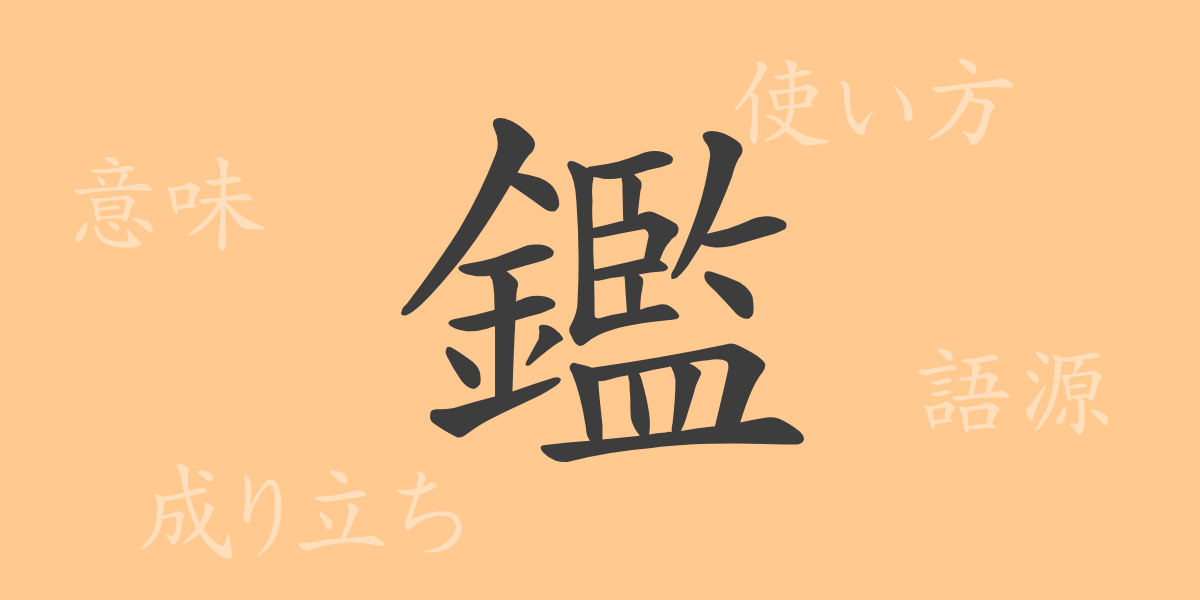Japan’s character culture is profound, and among them, the Joyo Kanji (常用漢字) are an indispensable element of daily life. “Kan” (鑑) is one of such Joyo Kanji, used in a wide variety of situations. This article delves into the origins, meanings, usage, readings, and related phrases and idioms of “Kan,” exploring the rich world embodied by this single character. Let’s embark on a journey to discover the allure of Kanji together.
The Origins (Etymology) of Kan
The Kanji “Kan” (鑑) is composed of the “metal” (金 [Kane]) radical and the character “Kan” (監), which means to supervise. Originally, the character was born from the act of making mirrors, and from there it came to mean “to see things clearly.” Furthermore, the “Kan” (監) part carries connotations of surveillance and supervision, reflecting the nuance of carefully discerning and examining matters.
The Meaning and Usage of Kan
The Kanji “Kan” (鑑) holds meanings such as “to discern the rationale of things by observing them,” “an example to follow,” and “a model.” Specifically, it is used in phrases like “to take a lesson as a Kan (example)” or “to regard someone as a Kan (model).” Moreover, it is also used in the context of appraising valuable items such as works of art, as in the word “appraisal” (鑑定).
Readings, Stroke Count, and Radical of Kan
“Kan” (鑑) has multiple readings in Japanese.
- Readings: The on’yomi (Sino-Japanese reading) is “Kan,” while the kun’yomi (native Japanese reading) is “Kanga-miru.”
- Stroke Count: The total number of strokes for “Kan” (鑑) is 23.
- Radical: The radical is “metal” (金 [Kanehen]).
Phrases, Idioms, and Proverbs Using Kan and Their Meanings
There are various phrases, idioms, and proverbs that include “Kan” (鑑), such as:
- “Appraisal” (鑑定)(Kantei) – The act of determining the value or authenticity of something.
- “Taking a precedent as a Kan” (前例を鑑に)(Zenrei-wo-kagami-ni) – Making decisions based on past examples as a reference.
- “To consider” (鑑みる)(Kanga-miru) – To think carefully, taking other examples as a reference.
- “A model through the ages” (古今の鑑)(Kosan-no-kagami) – A model or lesson to be learned through examples from all times and places.
These phrases and idioms, as well as proverbs, vividly represent the meanings of “Kan” as “an example” and “a lesson,” among others.
Summary of Kan
The Kanji “Kan” (鑑) plays a very important role in the Japanese language, from its formation to its diverse meanings, usage, and related words. Whether as a standard for evaluating something or as a lesson in life, “Kan” is always present in our lives. Having this knowledge enables richer Japanese expressions and allows us to appreciate the depth of language.

























